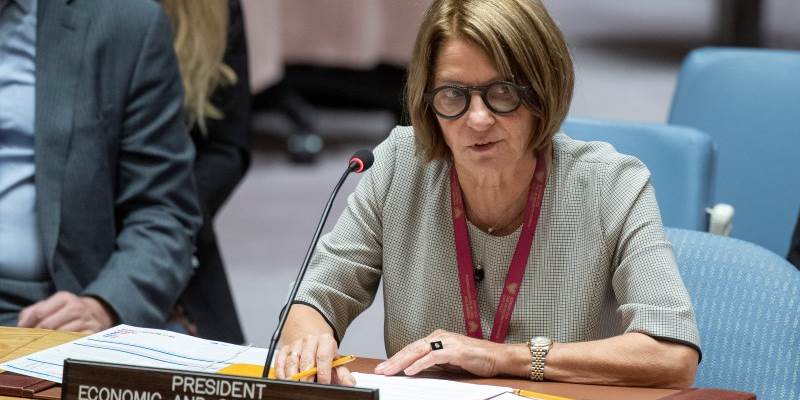President,
I am honoured to participate in this open debate in my capacity as President of the Economic and Social Council. Particularly on this issue - the question concerning Haiti - a clear example of the complimentary work of the Security Council and ECOSOC.
ECOSOC has had the situation in Haiti on its agenda since 1999 primarily through the work of the Ad Hoc Advisory Group on Haiti.
The Group was initiated in response to a request of the Security Council to ECOSOC based on Article 65 of the Charter. To provide recommendations on the long-term development of the country.
This has included interactions between the Security Council and the Chair of the Ad Hoc Advisory Group, Ambassador Marc-André Blanchard of Canada.
The Chair informally briefed the members of the Council, on the Ad Hoc Advisory Group’s findings and recommendations following a visit to Washington and Haiti earlier this year. Briefings such as this are a useful information sharing practice that should continue.
However, President, the most recent report of the Ad Hoc Advisory Group from July should sound the alarm for the international community.
It highlights that: Haiti remains under significant economic and social stress; that it has persistent humanitarian needs.
And, that these factors (traditionally considered to be purely development issues) are the root cause of the current political instability and deteriorating security situation.
The figures speak for themselves:
- 60 per cent of the country’s population live below the poverty line, and more than 40 per cent lack access to health and nutrition services.
- 2.6 million people are currently food insecure and in need of humanitarian assistance. Twice as many as in 2018.
- 36 per cent of young people are unemployed, and 85 per cent of college graduates leave Haiti in search of better opportunities elsewhere.
The statistics regarding Haiti’s youth are of particular concern.
Stability is at risk if economic policies and lack of educational opportunities keep youth without jobs.
It makes young people feel disenfranchised and uncertain of their future.
Conditions which we know can easily lead to youth falling prey to criminal organizations and violent gangs.
President,
Haiti is also one of the most vulnerable countries to climate change.
Its vulnerability to natural disasters adds significant complexity to the fragility of its economic and social situation.
As we speak here today in this Chamber, Haiti is facing physical and socioeconomic factors that have converged to threaten the country’s stability.
The 2030 Agenda for Sustainable Development recognizes that there can be no sustainable development without peace, and no peace without sustainable development.
To improve the lives of the people in Haiti, and ensure peace, we need to undertake major efforts to: reduce poverty, improve access to education, health, and decent work. While also implementing climate adaptation and mitigation strategies.
President,
Let me turn to the question of the transition of the UN’s presence in Haiti.
I welcome the decision by the Security Council for the United Nations Integrated Office in Haiti (BINUH) to ensure collaboration between all United Nations political, development, humanitarian and financial entities, as well as other local and international partners operating in Haiti.
Now more than ever, partnership between all stakeholders is needed to effectively respond to the problems of the country.
The transition of the UN presence to a more development-oriented configuration should not lead to less engagement by the international community. It should lead to more!
We should learn from previous transition experiences and equip the UN Country Team with adequate resources and capacity to do its job.
With the aim of turning Haiti into a model for future United Nations supported transitions in complex settings.
We should redouble our joint efforts to support the people of Haiti. And to put in place the conditions for long-term sustainable development and stability.
President,
The need for continued collaboration between ECOSOC and the Security Council is evident.
We must work towards breaking down the traditional silos between the peace and development pillars of the UN.
Only then can our collective efforts be more coherent and effective. And address the interconnected challenges facing Haiti.
We owe it to its people.
Thank you.
